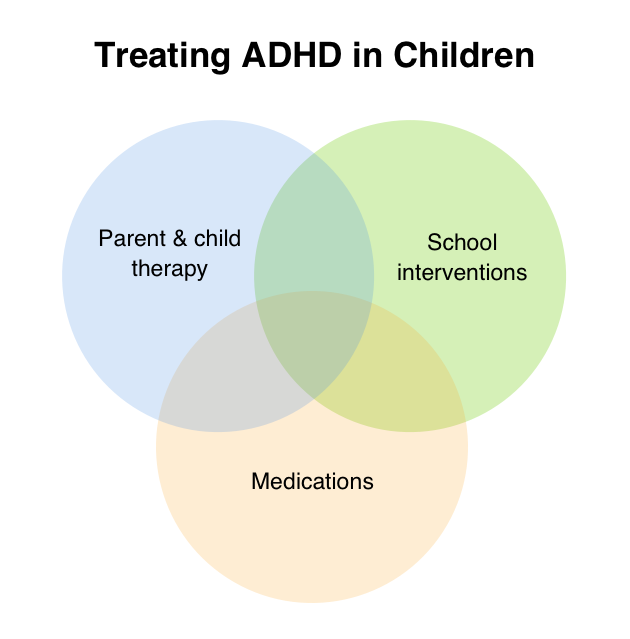The Benefits of Customized ADHD Treatment Strategies for Better End Results
The application of personalized ADHD therapy strategies has emerged as a pivotal approach in improving restorative results for individuals affected by this condition (ADHD treatment). By identifying the special manifestations of ADHD in each person, these customized interventions advertise greater involvement and motivation, inevitably leading to extra efficient coping strategies.
Comprehending ADHD Irregularity
Although Attention-Deficit/Hyperactivity Condition (ADHD) is usually perceived as a particular problem, its symptoms can differ significantly among people. Gender differences likewise play a role, as males are a lot more regularly identified with ADHD and often show extra overt signs, whereas women might present with much less obvious inattentiveness.
Moreover, people with ADHD might experience a spectrum of psychological and behavioral difficulties, such as anxiousness or opposite defiance, that can make complex medical diagnosis and therapy. The interaction of these factors can result in varied experiences of ADHD, necessitating a nuanced understanding of the disorder. It is likewise worth noting that ADHD can present in different ways throughout numerous social contexts, influencing just how symptoms are recognized and dealt with. This understanding highlights the importance of recognizing ADHD as a multifaceted problem, which calls for personalized methods to treatment that take right into account the unique needs and experiences of each person.
Trick Components of Customization
Customized ADHD treatment strategies are based in a number of essential elements that make certain reliable monitoring of the condition. First, a comprehensive evaluation is critical, involving standard ranking scales, meetings, and behavior observations. This comprehensive evaluation enables clinicians to recognize the person's one-of-a-kind signs, strengths, and challenges.
2nd, the participation of multiple stakeholders, consisting of parents, teachers, and the person, contributes to a holistic sight of the person's demands. Collaboration cultivates an encouraging setting that can adjust to the person's context and way of life.
Third, therapy plans must be flexible and adaptable, enabling modifications based on continuous responses and the individual's progressing demands. This adaptability allows the assimilation of various restorative strategies, such as behavioral interventions, psychoeducation, and medication monitoring.
Moreover, social and contextual factors should be taken into consideration. Recognizing the person's background, values, and preferences makes sure that the therapy matters and respectful.
Finally, routine follow-ups and evaluations are vital to keep an eye on progression and make necessary adjustments. By focusing on these key components, personalized ADHD treatment strategies can considerably improve the performance of treatments, leading to improved results for people with ADHD.
Improved Interaction and Inspiration
To properly promote enhanced engagement and inspiration in people with ADHD, it is necessary to incorporate techniques that reverberate with their passions and toughness. Individualized treatment strategies that straighten with a person's enthusiasms can bring about boosted involvement in healing tasks, promoting a sense of possession and interest for the process.
Utilizing interactive and imaginative techniques can likewise considerably improve motivation. Including gamification elements or real-world applications of abilities can make tasks more enticing and appropriate. This not click for more only records attention yet likewise enhances discovering via pleasurable experiences.
Moreover, establishing achievable and purposeful goals customized to the person can boost motivation. When individuals see their progress in the direction of personally significant goals, they are more most likely to remain engaged. Routine responses and acknowledgment of achievements can additionally sustain inspiration, producing a positive go responses loop that encourages ongoing effort.
Last but not least, promoting a supportive atmosphere where people really feel understood and valued can substantially impact their interaction degrees. When therapy plans are developed collaboratively, integrating input from the person, they are most likely to really feel purchased their trip, ultimately leading to enhanced end results in taking care of ADHD.
Improved Coping Techniques
Establishing boosted coping strategies is important for people with ADHD, as it outfits them with effective tools to navigate daily difficulties. A tailored therapy strategy enables for the recognition of specific coping mechanisms customized to the individual's unique needs and situations - ADHD treatment. Methods such as mindfulness, time management skills, and business techniques can be incorporated right into day-to-day regimens, cultivating a feeling of control and lowering anxiousness
Mindfulness practices, consisting of meditation and deep-breathing exercises, aid individuals with ADHD focus their attention and regulate their feelings. Time administration strategies, such as utilizing timers or damaging tasks into smaller, convenient actions, can alleviate feelings of overwhelm. Furthermore, organizational tools like planners and lists can enhance effectiveness and responsibility.
Long-term Positive End Results
Applying personalized click here to read ADHD therapy plans can result in considerable long-lasting favorable results for individuals. These customized techniques, which think about special symptoms, choices, and life situations, facilitate a lot more effective management of ADHD signs and symptoms gradually. By concentrating on the details demands of the individual, these strategies improve adherence to treatment protocols and foster greater involvement in restorative activities.

Moreover, customized therapy plans can substantially lower the threat of comorbid conditions, such as stress and anxiety and clinical depression, which are commonly connected with ADHD. Early treatment and constant assistance aid individuals build resilience and coping strategies, promoting overall mental health and wellness.
Eventually, the lasting positive results of individualized ADHD treatment intends not just improve the high quality of life for people yet likewise add to their general well-being and success in different life domain names. This holistic method underscores the significance of individualized care in handling ADHD efficiently.
Conclusion

Comments on “Holistic Depression Treatment for Balanced Mental Health”